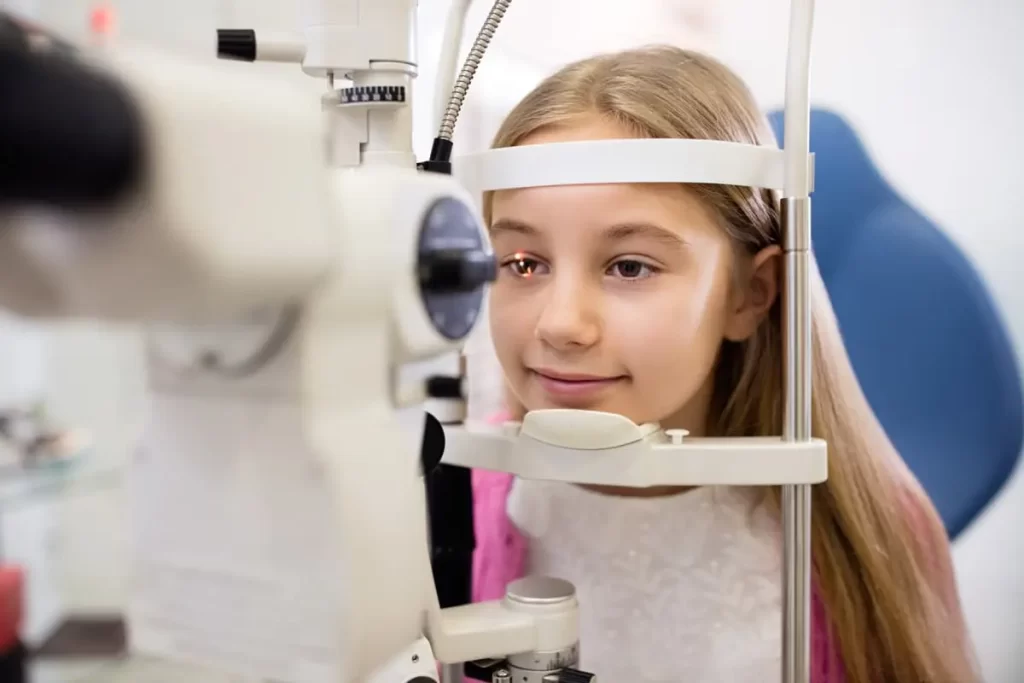Understanding the Comprehensive Nature of Vision Beyond Clear Sight
While many individuals commonly connect an optometrist with the straightforward provision of prescriptions for corrective eyewear or remedies for dry and fatigued eyes, it is crucial to acknowledge that not all visual challenges stem from mere blurry vision. In fact, there are instances where the eyes may appear entirely healthy, yet individuals experience significant difficulties such as reading comprehension challenges, stagnation in educational advancement, or noticeable declines in concentration and focus as the day progresses. Identifying these subtle yet critical indicators can be essential for addressing underlying vision issues that might otherwise go unnoticed and unaddressed.
At Eyes by Design, we focus on behavioural optometry, which represents a sophisticated clinical methodology that transcends the basic ability to see clearly. Our approach emphasizes the importance of the entire visual system in enhancing learning performance and facilitating everyday activities. This perspective recognizes that vision is not a static condition but a dynamic interaction among the eyes, the brain, and the body, all collaborating to create a seamless and effective visual experience that is essential for daily functioning.

Delving Into the Essential Principles and Benefits of Behavioural Optometry
Behavioural optometry, often referred to as functional or developmental optometry, is grounded in the understanding that clear vision is merely the starting point of a comprehensive visual experience. For vision to be truly effective, the eyes must work efficiently, track accurately, adapt focus seamlessly, and relay information to the brain in a manner that supports movement, posture, memory, and learning processes. This interconnectedness highlights the complexity of the visual system and its impact on various aspects of daily life.
This holistic approach encompasses several key components:
- Effortless tracking while reading books, reviewing pages, and using screens
- Quick and reliable focusing capabilities across varying distances
- Effective coordination between both eyes to ensure optimal performance
- Enhanced spatial awareness and body control for better navigation
- Accurate visual processing during real-time activities and interactions
A behavioural optometrist conducts extensive evaluations of these interconnected systems. The primary goal is to ascertain not only if you can see clearly but also whether your visual system is functioning optimally to enhance your daily activities and social interactions, thereby improving your overall quality of life.

Identifying Key Indicators That Visual Challenges May Be Impacting Your Life
1. Your Child Struggles with Reading Despite Their Intelligence and Articulation
A child who demonstrates intelligence and expressiveness but encounters difficulty in reading may not necessarily be grappling with a learning disability. Instead, they could be experiencing visual dysfunction. Symptoms such as skipping lines, using fingers to follow along, or reporting that words appear to blur or shift positions are significant signals that merit further examination. We perform thorough assessments of how the eyes perform during sustained near tasks like reading, where even minor inefficiencies often remain undetected during standard testing procedures.
2. Experiencing Frequent Headaches or Eye Strain After Prolonged Screen Use
Many individuals tend to dismiss digital eye strain as a common issue; however, symptoms such as pressure behind the eyes, headaches that worsen by the end of the day, or difficulties in maintaining focus can indicate a breakdown in visual coordination. Through our detailed behavioural assessments, we can identify whether the muscles responsible for eye alignment and focus are being overworked due to the increasing demands of screen-based activities.
3. Displaying Poor Coordination, Clumsiness, or Hesitance to Participate in Sports
Vision is integral to facilitating movement and coordination. If a child appears to shy away from ball sports, struggles with catching objects, or faces challenges in maintaining balance, these behaviors may be closely related to how their brain interprets visual-spatial cues. Such patterns often reflect challenges in visual-motor integration rather than a simple lack of athletic ability, which can be addressed through targeted support.
4. An Articulate Child Who Faces Difficulties with Written Assignments
Many children who are naturally curious and verbally articulate may underperform in school because they exert excessive effort to track and process written materials. Behaviors such as fidgeting, daydreaming, slow task completion, or resistance to reading can arise from unrecognized functional vision issues, rather than mere disinterest or defiance. Addressing these underlying issues can significantly enhance their academic performance.
5. Persistent Challenges Despite Wearing Prescription Glasses
Some patients continue to encounter difficulties even after multiple adjustments to their prescription glasses. They may struggle to relax their eyes, experience problems with depth perception, or never feel visually comfortable. This often indicates deeper issues with eye teaming or neurological processing rather than simple refractive errors that can be resolved through comprehensive assessments.

What to Expect During a Comprehensive Behavioural Optometry Evaluation
At Eyes By Design, we adopt a thorough, systematic, and personalized approach to our assessments. We meticulously examine how your eyes move, function together, and respond to various demands. Our primary focus areas include:
- Control and precision of eye movements
- Flexibility and endurance in focusing
- Alignment and coordination of the eyes for optimal performance
- Visual memory and cognitive load management strategies
- Coordination and spatial reasoning abilities to enhance functionality
Based on our findings, we develop a personalized plan that may incorporate therapeutic lenses, vision therapy, or practical adjustments to your environment, whether at school or in the workplace, ensuring a customized approach to improving your visual experience and overall functionality, ultimately enhancing your quality of life.
Understanding How Vision Influences Daily Life and Learning Effectiveness
If you or your child are encountering daily challenges that standard eye examinations cannot elucidate, a behavioural optometry assessment may uncover the underlying factors contributing to these frustrations. This comprehensive process extends well beyond merely achieving clearer vision; it encompasses the pursuit of more comfortable seeing, increased confidence in movement, and improved learning efficiency that is essential for academic success.
At Eyes By Design in Kincumber, we are dedicated to helping individuals realize the full potential of their vision through comprehensive behavioural care. Our holistic strategy aims to address the intricate nature of vision and its profound impact on overall quality of life, ensuring that each individual can thrive in their personal and professional endeavors.
This article aims to deepen your understanding and knowledge regarding general eye health topics.
It should not serve as a substitute for professional advice, diagnosis, or treatment.
Always consult your healthcare professional before implementing this information into your health regimen.

Dr Nicholas Altuneg
For over two decades, my unwavering passion has been to empower individuals of all ages to lead improved lives through enhanced vision. At Eyes by Design, we believe that vision encompasses far more than simply the ability to see clearly or read small text from a distance; it profoundly shapes your perceptions and responses at every moment of the day, significantly affecting your interactions and experiences.
Read more about Dr Nick
The Article: Signs You Need a Behavioural Optometrist first appeared on https://writebuff.com
The Article Behavioural Optometrist: Key Signs You Shouldn’t Ignore Was Found On https://limitsofstrategy.com
